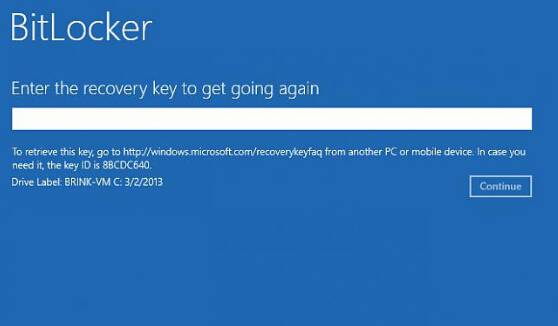Yes, you can delete the installer folder in Windows 10. To do so, please follow these steps: 1. Open File Explorer and go to the location of the installer folder. 2. Right-click on it and select Delete from the menu options that appear. 3. Confirm your action by clicking Yes in any prompts that may appear warning you about deleting system files or folders. 4. Once deleted, empty your Recycle Bin to ensure all traces of the folder are gone from your computer
Is it OK to delete files from Windows Installer folder?
What happens if I delete Windows Installer?
If you delete Windows Installer, it can cause serious problems with your system. This is because Windows Installer is an essential part of the operating system that helps to install and uninstall software programs. Without this service running, you won’t be able to install or update any programs on your computer and may even encounter errors while trying to do so. Therefore, it is not recommended to delete Windows Installer as doing so will cause major issues with your system.
How do I delete Windows Installer folder in Windows 10?
In order to delete the Windows Installer folder in Windows 10, you will need to follow a few steps. First, open File Explorer and click on “View” at the top. Then select “Options” and then “Change folder and search options” from the drop-down menu. Once this is open, select the view tab and under advanced settings uncheck “Hide protected operating system files (Recommended).” This will allow you to access folders that are normally hidden from view. After doing this, navigate back to where your window installer folder is located which can typically be found in C:/Windows/Installer/. Right-click on it or any of its contents and select delete; confirming when prompted if necessary. You should now have successfully removed your windows installer folder!
Can I uninstall Windows Installer?
No, you cannot uninstall Windows Installer. It is a core component of the Windows operating system and is responsible for installing and managing software applications on your computer. Removing it could cause serious problems with the functionality of your computer, so it’s best to leave it in place. If you’re having issues with a particular application that was installed using Windows Installer, try reinstalling or updating the program instead.
Is it safe to delete Installer?
It depends on the installer and what it’s used for. Generally, it is not recommended to delete an installer unless you are certain of what it does, who created it, and why you no longer need or use it. If you’re unsure about any of these factors, then we recommend taking a few extra steps before deleting the installer:
Is it fine to delete Installer files?
Yes, it is acceptable to delete installer files that are no longer needed. In order to do so, you should first check the license agreement of any software programs associated with the installers in case there are any restrictions on deleting them. Once you have verified this is allowed, you can go ahead and delete the installers from your system. To do this, simply locate them in your computer’s file explorer and select ‘Delete’ or ‘Move to Trash/Recycle Bin’ depending on which operating system you use.
Is it OK to delete installers?
Yes, it is generally OK to delete installers after you have installed a program. Doing so can help free up disk space and reduce clutter. However, before deleting an installer, there are a few steps that should be taken in order to ensure the full removal of the program from your system and prevent any issues with software updates or reinstalls down the line.
Why is Windows Installer folder so big?
The Windows Installer folder can become quite large due to the way Windows stores program installation files. When you install programs, they typically require a variety of components and files that need to be accessed during their use. Many of these components are stored in the Windows Installer folder so they can be easily accessed when needed. Over time, as more programs are installed and updated, this folder can increase in size significantly.
To reduce the size of your Windows Installer folder, it is recommended that you regularly clean out unnecessary or outdated program installations from your system by using an uninstall utility or disk cleanup tool like CCleaner or Wise Disk Cleanup. Additionally, you should keep all software up-to-date with the latest available updates for optimal performance and stability on your computer.
{“@context”:”https://schema.org”,”@type”:”FAQPage”,”mainEntity”:[{“@type”:”Question”,”name”:”What happens if I delete Windows Installer?”,”acceptedAnswer”:{“@type”:”Answer”,”text”:”nnIf you delete Windows Installer, it can cause serious problems with your system. This is because Windows Installer is an essential part of the operating system that helps to install and uninstall software programs. Without this service running, you wonu2019t be able to install or update any programs on your computer and may even encounter errors while trying to do so. Therefore, it is not recommended to delete Windows Installer as doing so will cause major issues with your system.”}},{“@type”:”Question”,”name”:”How do I delete Windows Installer folder in Windows 10?”,”acceptedAnswer”:{“@type”:”Answer”,”text”:”nnIn order to delete the Windows Installer folder in Windows 10, you will need to follow a few steps. First, open File Explorer and click on u201cViewu201d at the top. Then select u201cOptionsu201d and then u201cChange folder and search optionsu201d from the drop-down menu. Once this is open, select the view tab and under advanced settings uncheck u201cHide protected operating system files (Recommended).u201d This will allow you to access folders that are normally hidden from view. After doing this, navigate back to where your window installer folder is located which can typically be found in C:/Windows/Installer/. Right-click on it or any of its contents and select delete; confirming when prompted if necessary. You should now have successfully removed your windows installer folder!”}},{“@type”:”Question”,”name”:”Can I uninstall Windows Installer?”,”acceptedAnswer”:{“@type”:”Answer”,”text”:”nnNo, you cannot uninstall Windows Installer. It is a core component of the Windows operating system and is responsible for installing and managing software applications on your computer. Removing it could cause serious problems with the functionality of your computer, so it’s best to leave it in place. If you’re having issues with a particular application that was installed using Windows Installer, try reinstalling or updating the program instead.”}},{“@type”:”Question”,”name”:”Is it safe to delete Installer?”,”acceptedAnswer”:{“@type”:”Answer”,”text”:”nnIt depends on the installer and what it’s used for. Generally, it is not recommended to delete an installer unless you are certain of what it does, who created it, and why you no longer need or use it. If you’re unsure about any of these factors, then we recommend taking a few extra steps before deleting the installer:”}},{“@type”:”Question”,”name”:”Is it fine to delete Installer files?”,”acceptedAnswer”:{“@type”:”Answer”,”text”:”nnYes, it is acceptable to delete installer files that are no longer needed. In order to do so, you should first check the license agreement of any software programs associated with the installers in case there are any restrictions on deleting them. Once you have verified this is allowed, you can go ahead and delete the installers from your system. To do this, simply locate them in your computeru2019s file explorer and select u2018Deleteu2019 or u2018Move to Trash/Recycle Binu2019 depending on which operating system you use.”}},{“@type”:”Question”,”name”:”Is it OK to delete installers?”,”acceptedAnswer”:{“@type”:”Answer”,”text”:”nnYes, it is generally OK to delete installers after you have installed a program. Doing so can help free up disk space and reduce clutter. However, before deleting an installer, there are a few steps that should be taken in order to ensure the full removal of the program from your system and prevent any issues with software updates or reinstalls down the line.”}},{“@type”:”Question”,”name”:”Why is Windows Installer folder so big?”,”acceptedAnswer”:{“@type”:”Answer”,”text”:”nnThe Windows Installer folder can become quite large due to the way Windows stores program installation files. When you install programs, they typically require a variety of components and files that need to be accessed during their use. Many of these components are stored in the Windows Installer folder so they can be easily accessed when needed. Over time, as more programs are installed and updated, this folder can increase in size significantly. nnTo reduce the size of your Windows Installer folder, it is recommended that you regularly clean out unnecessary or outdated program installations from your system by using an uninstall utility or disk cleanup tool like CCleaner or Wise Disk Cleanup. Additionally, you should keep all software up-to-date with the latest available updates for optimal performance and stability on your computer.”}}]}







